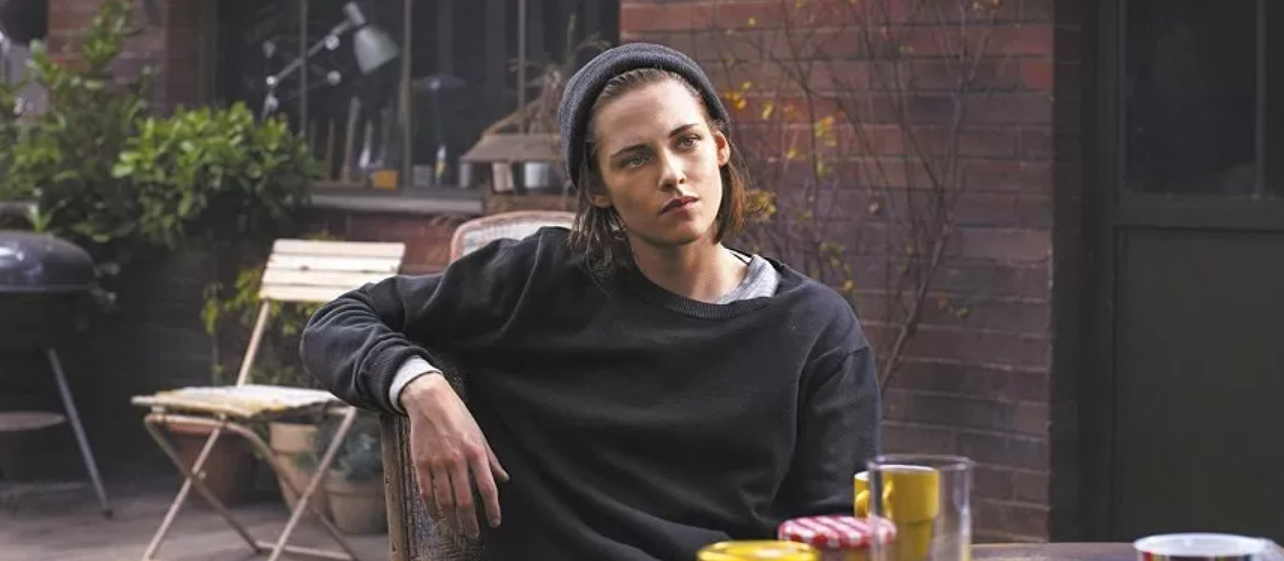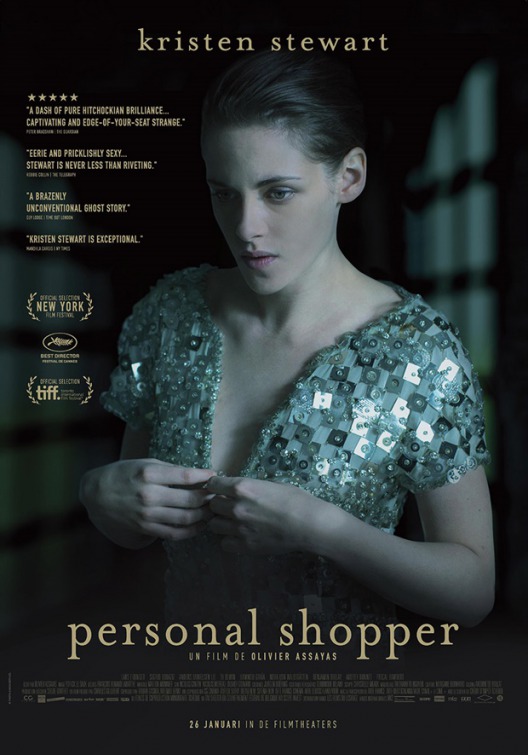

“We made this oath, whoever died first would send the other a sign.”
In Personal Shopper, Olivier Assayas once again puts Kirsten Stewart’s naturally low-key screen persona to good effect. As in Clouds of Sils Maria, she plays a personal assistant to a celebrity—this time to a filthy rich supermodel (Nora Waldstätten) whom she barely ever sees. A transient, rootless wanderer, Maureen (Stewart) has taken the thankless job only as a means to hang around Paris, where she plans to wait for her recently-deceased twin brother to contact her from the afterlife.
Just as its protagonist tries to process her grief in half-hearted fits and starts filtered through her postmodern worldview, this detached, placid, moody film finds itself flitting around without a coherent identity. One minute it’s a ghost story, the next a meditation on the mundanity of modern life. Later, it takes on the aspects of a murder mystery and a stalker movie with touches of erotic thriller. A few of these strands have some merit, but none are substantial enough to stand on their own and there is almost no discernable effort made toward meshing them. Some have called it a deconstruction of horror, a notion I’m willing to grant if only so that its myriad shortcomings have an explanation.
Superseding the ambiguities of its limp narrative is an intense focus on its primary subject, an angsty and technologically overstimulated nomad whose personality is built on contradictions. Maybe she’s a medium attuned to the “vibe” of the spirit world, but she also isn’t sure if she believes in the afterlife. She seems to hate the vanity of the fashion world, but she’s also oddly obsessed with its glamor. She admires her late brother’s commitment to carpentry, but can’t follow through on her own convictions. She has no force of personality and thus the film, which circles her discordant psyche, feels somewhat arbitrary. Like other films that study characters suffering from malaise, it struggles to find depth in examining something shallow. It wants to make a profound point about meaning and personal connection, but only manages to render itself meaningless and disconnected.
It works well enough when it leans into genre and drama—Assayas does a decent Hitchcock impression—but it almost always follows such instances with long stretches of Stewart fidgeting around, climbing stairs, puffing on cigarettes, drinking coffee, riding her moped, or nervously texting an anonymous stranger who may or may not be the spirit of her departed sibling. (Indeed, perhaps the film’s most stunning achievement is that it gets away with about twenty minutes of over-the-shoulder texting, which should, but doesn’t, cripple the whole enterprise all by itself. It is very possible that Stewart texts more words than she speaks.) Stewart is good at this hunched-over twitching, but not good enough to carry a film that is so dull in its execution and uncertain of its identity.